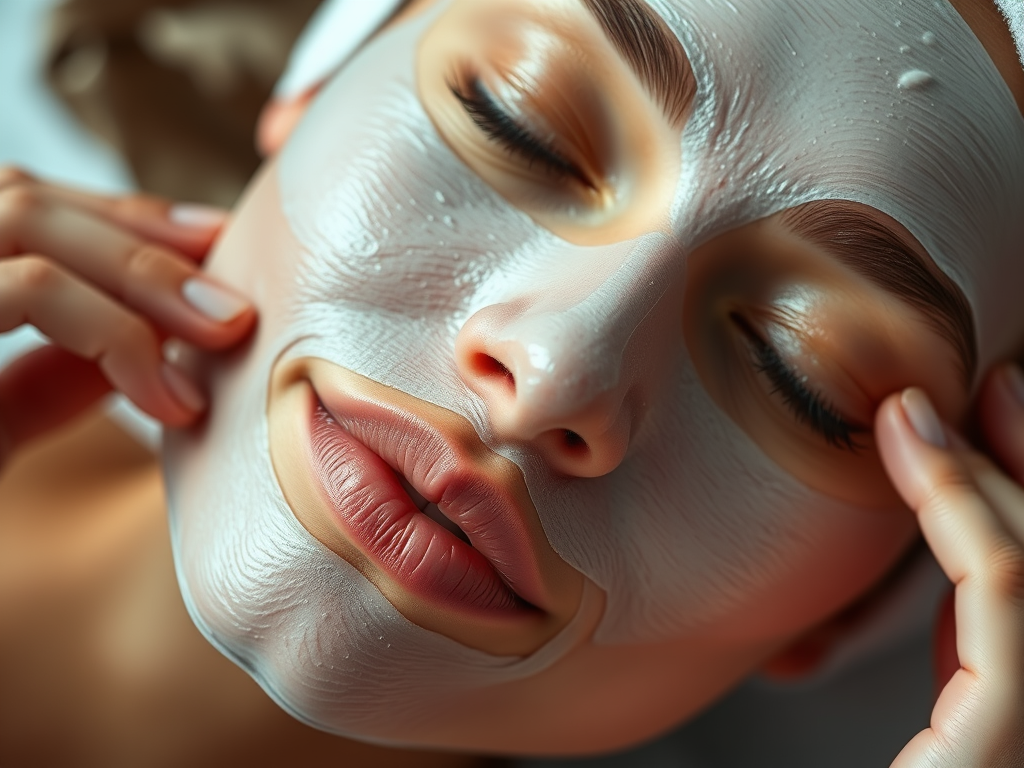Radiant, healthy skin isn’t just about the products you apply topically; it’s deeply intertwined with your lifestyle. From sleep and diet to stress management, sun protection, exercise, and even your environment, your daily habits significantly influence your skin’s appearance, texture, and overall health.
This comprehensive article explores the profound connection between lifestyle and skin, providing practical, actionable tips for achieving a natural glow from within and addressing specific skin concerns through lifestyle adjustments.
Sleep: The Cornerstone of Skin Regeneration
“Beauty sleep” is far from a myth; it’s a biological necessity. During sleep, your body undergoes essential repair and regeneration processes, including the renewal of skin cells. When you’re sleep-deprived, your body releases more cortisol, the stress hormone.
Elevated cortisol levels can trigger inflammation, leading to breakouts, exacerbating conditions like eczema and psoriasis, and accelerating the breakdown of collagen, contributing to premature aging and wrinkles.
Furthermore, lack of sleep impairs blood circulation, reducing the delivery of oxygen and nutrients to the skin. This can result in a dull, tired-looking complexion, under-eye circles, and puffiness.
Practical Tips for Prioritizing Sleep:
- Establish a Consistent Sleep Schedule: Go to bed and wake up at the same time each day, even on weekends, to regulate your body’s natural sleep-wake cycle (circadian rhythm).
- Create a Relaxing Bedtime Routine: Wind down before bed with calming activities like reading, taking a warm bath, or listening to soothing music. Avoid screen time (phones, tablets, computers) at least an hour before sleep, as the blue light emitted from these devices can interfere with melatonin production.
- Optimize Your Sleep Environment: Ensure your bedroom is dark, quiet, and cool (around 60-67°F or 15-19°C). Use blackout curtains, earplugs, or a white noise machine if needed. Invest in a comfortable mattress and pillows.
- Avoid Caffeine and Alcohol Before Bed: These substances can disrupt sleep quality.
- Consider a Sleep Mask: A sleep mask can block out light and promote deeper sleep.

Nutrition: Fueling Your Skin from the Inside Out
What you consume directly impacts your skin’s health. A balanced diet rich in fruits, vegetables, whole grains, and lean protein provides essential vitamins, minerals, and antioxidants that nourish skin cells and support optimal function.
- Antioxidants: Found in abundance in berries, leafy greens, colorful vegetables (like bell peppers and carrots), and dark chocolate, antioxidants protect against free radical damage. Free radicals are unstable molecules that can damage cells and contribute to premature aging, wrinkles, and even skin cancer.
- Omega-3 Fatty Acids: Found in fatty fish (salmon, mackerel, tuna), flaxseeds, chia seeds, and walnuts, omega-3 fatty acids help reduce inflammation, promote healthy skin cell membranes, and contribute to a hydrated, supple complexion.
- Vitamins and Minerals: Vitamin C is crucial for collagen production, vitamin A supports cell turnover, and zinc plays a role in wound healing. Ensure you’re getting a variety of vitamins and minerals through a balanced diet.
Conversely, a diet high in processed foods, refined sugar, and unhealthy fats can wreak havoc on your skin. These foods can trigger inflammation, leading to breakouts, acne, and other skin problems. They can also contribute to glycation, a process that damages collagen and elastin, accelerating skin aging.
Practical Dietary Tips for Healthy Skin:
- Eat a Rainbow of Fruits and Vegetables: Aim for a variety of colorful produce to maximize your intake of vitamins, minerals, and antioxidants.
- Prioritize Whole Grains: Choose whole wheat bread, brown rice, and oats over refined grains.
- Include Lean Protein: Opt for lean meats, poultry, fish, beans, and lentils.
- Limit Processed Foods, Sugary Drinks, and Unhealthy Fats: Minimize your intake of processed snacks, sugary sodas, and fried foods.
- Stay Hydrated: Drink plenty of water throughout the day to keep your skin hydrated from the inside out.

Stress Management: Calming the Skin-Brain Axis
The connection between stress and skin health is well-established. When you’re stressed, your body releases cortisol, which can increase oil production, leading to breakouts and acne. Stress can also exacerbate existing skin conditions like eczema, psoriasis, and rosacea. Chronic stress can accelerate skin aging by interfering with collagen production and promoting inflammation.
Practical Stress Management Techniques for Healthy Skin:
- Mindfulness and Meditation: Regular mindfulness practice and meditation can help reduce cortisol levels and promote relaxation.
- Yoga and Exercise: Physical activity is a powerful stress reliever. Exercise releases endorphins, which have mood-boosting effects.
- Deep Breathing Exercises: Simple deep breathing techniques can quickly calm the nervous system and reduce stress.
- Spending Time in Nature: Studies have shown that spending time outdoors can lower cortisol levels and improve overall well-being.
- Adequate Sleep: As mentioned earlier, prioritizing sleep is crucial for managing stress.
- Seek Professional Support: If you’re struggling to manage stress on your own, consider seeking guidance from a therapist or counselor.
(Image Placeholder 3: A person practicing a relaxing activity like yoga or spending time in nature.)
Hydration: The Foundation of Skin Elasticity and Radiance
Water is essential for virtually every bodily function, including maintaining skin hydration. Dehydrated skin can appear dry, dull, tight, and more prone to wrinkles and fine lines. Proper hydration helps maintain skin elasticity, plumpness, and a healthy glow.
Practical Tips for Staying Hydrated:
- Carry a Water Bottle: Keep a reusable water bottle with you throughout the day and sip on it regularly.
- Set Reminders: Use a phone app or set reminders to drink water at regular intervals.
- Eat Hydrating Foods: Incorporate fruits and vegetables with high water content, such as watermelon, cucumbers, and celery, into your diet.
- Limit Caffeine and Alcohol: These substances can dehydrate the body.
(Image Placeholder 4: A person drinking a glass of water with fresh fruit.)

Sun Protection: The Ultimate Anti-Aging Secret
Sun exposure is a primary cause of premature skin aging, wrinkles, sunspots, and even skin cancer. Protecting your skin from the sun’s harmful UV rays is paramount for maintaining long-term skin health.
Practical Sun Protection Strategies:
- Wear Broad-Spectrum Sunscreen Daily: Apply a broad-spectrum sunscreen with SPF 30 or higher every day, even on cloudy days. Reapply every two hours, especially after swimming or sweating.
- Seek Shade During Peak Sun Hours: Avoid prolonged sun exposure between 10 a.m. and 4 p.m., when the sun’s rays are strongest.
- Wear Protective Clothing: Wear hats, sunglasses, and long sleeves when possible.
(Image Placeholder 5: A person applying sunscreen and wearing protective clothing.)

Exercise: Boosting Circulation and Detoxification
Regular physical activity improves blood circulation, delivering vital oxygen and nutrients to skin cells. Exercise can also help reduce stress, improve sleep quality, and promote overall well-being, all of which contribute to healthier, more radiant skin. Sweating during exercise can also help detoxify the skin by flushing out toxins.
Practical Tips for Incorporating Exercise:
- Find Activities You Enjoy: Choose activities you find enjoyable to make exercise a sustainable habit.
- Aim for Regularity: Aim for at least 30 minutes of moderate-intensity exercise most days of the week.
- Incorporate Movement into Your Daily Routine: Take the stairs instead of the elevator, walk during your lunch break, or bike to work.
(Image Placeholder 6: A person enjoying an outdoor exercise activity.)

Smoking and Alcohol: Detrimental Effects on Skin
Smoking and excessive alcohol consumption have profoundly negative effects on skin health. Smoking restricts blood flow to the skin, depriving it of oxygen and essential nutrients. This can lead to premature aging, wrinkles, a dull complexion, and delayed wound healing. Alcohol dehydrates the skin, contributes to inflammation, and can exacerbate skin conditions like rosacea.
Practical Steps for Improving Skin Health:
- Quit Smoking: If you smoke, quitting is one of the best things you can do for your overall health and skin health.
- Limit Alcohol Intake: Consume alcohol in moderation, or avoid it altogether.
Building a Holistic Approach: The Key to Long-Term Skin Health
Achieving and maintaining healthy, glowing skin is a holistic effort. Combining a consistent, well-chosen skincare routine with healthy lifestyle habits is the most effective way to achieve long-term results.
By prioritizing sleep, nourishing your body with a balanced diet, managing stress effectively, staying hydrated, protecting yourself from the sun, engaging in regular exercise, and avoiding harmful habits like smoking and excessive alcohol consumption, you can significantly improve your skin’s health




Leave a Reply